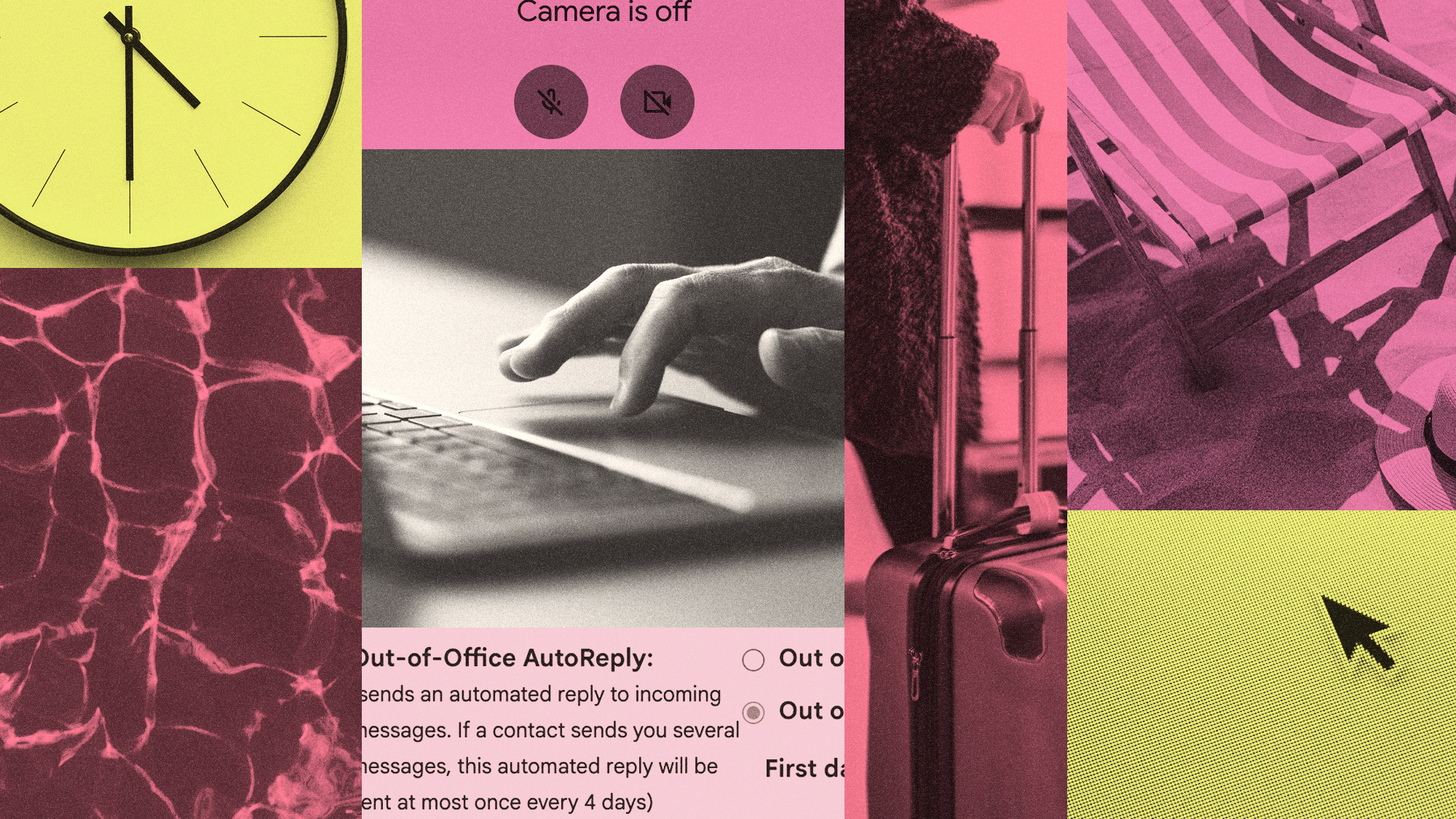'Quiet vacationing': a secret revolt against workplace culture
You can be in two places at once, and workers are testing the idea


A free daily email with the biggest news stories of the day – and the best features from TheWeek.com
You are now subscribed
Your newsletter sign-up was successful
Employees have been taking more "quiet vacations" over the past year. And this trend, when someone goes on a trip but concurrently presents the illusion of being online and working, is likely an indicator of a larger problem with workplace culture in which employees are afraid of slacking off or being seen as lazy.
What's the data?
Approximately 41% of employees have taken a quiet vacation in 2025, according to a survey conducted by Resume Builder. Of those who have quiet vacationed, "3% have taken just one quiet vacation, 48% two to three and 28% four to five." Also, "about 11% have taken six to seven secret vacation days and 4% have taken 10 days or more."
The trend began last summer, with many taking summer vacations on the sly. "Employees utilize various methods like scheduling emails in advance or setting auto-responders to create the illusion of being present while they're actually on vacation," Tawny Lott Rodriguez, the director of human resources at the private school Rowland Hall in Salt Lake City, said to U.S. News & World Report. The concept has similarities to the "quiet quitting" trend, where employees check out of their jobs but refuse to quit.
The Week
Escape your echo chamber. Get the facts behind the news, plus analysis from multiple perspectives.

Sign up for The Week's Free Newsletters
From our morning news briefing to a weekly Good News Newsletter, get the best of The Week delivered directly to your inbox.
From our morning news briefing to a weekly Good News Newsletter, get the best of The Week delivered directly to your inbox.
Quiet vacationing arose because the "boundaries between work and personal time have blurred with the rise of remote work, which has given more people the flexibility to do their jobs from far-flung locales," said The Wall Street Journal. However, the approach is "often counterproductive," as "you're neither getting a truly restorative break from work, nor being that productive." There is also, of course, the risk of getting caught.
Why are people quiet vacationing?
The rise of quiet vacationing is a canary in the coal mine for corporate work culture. "This isn't just people being sneaky," said Marais Bester, a senior consultant at SHL, to Forbes. It's instead an indication that "many don't feel safe or supported enough to take a proper break." So they find "workarounds, jiggling their mouse to stay 'active,' turning video off on calls, answering just enough emails to look busy." The problem is the missed-deadline potential and boundless "tasks to complete upon return" along with "facing repercussions if discovered," said U.S. News & World Report. These are ways that "taking a quiet vacation can backfire."
Many employees also have limited amounts of paid time off, so they are reluctant to use it. The blurred lines between leisure time and work time have put pressure on employees in general. "All of this comes from a fear of looking like they're slacking off," said Fortune.
Employers should be more intentional about setting boundaries between work and free time. If employers want people to "show up fully engaged, creative and resilient," they need to stop "rewarding burnout" and start "valuing recovery," said Bester. "Rested people do better work. It really is that simple."
A free daily email with the biggest news stories of the day – and the best features from TheWeek.com
Devika Rao has worked as a staff writer at The Week since 2022, covering science, the environment, climate and business. She previously worked as a policy associate for a nonprofit organization advocating for environmental action from a business perspective.
-
 Switzerland could vote to cap its population
Switzerland could vote to cap its populationUnder the Radar Swiss People’s Party proposes referendum on radical anti-immigration measure to limit residents to 10 million
-
 Political cartoons for February 15
Political cartoons for February 15Cartoons Sunday's political cartoons include political ventriloquism, Europe in the middle, and more
-
 The broken water companies failing England and Wales
The broken water companies failing England and WalesExplainer With rising bills, deteriorating river health and a lack of investment, regulators face an uphill battle to stabilise the industry
-
 Companies are increasingly AI washing
Companies are increasingly AI washingThe explainer Imaginary technology is taking jobs
-
 Ski town strikers fight rising cost of living
Ski town strikers fight rising cost of livingThe Explainer Telluride is the latest ski resort experiencing a patroller strike
-
 How prediction markets have spread to politics
How prediction markets have spread to politicsThe explainer Everything’s a gamble
-
 SiriusXM hopes a new Howard Stern deal can turn its fortunes around
SiriusXM hopes a new Howard Stern deal can turn its fortunes aroundThe Explainer The company has been steadily losing subscribers
-
 The longevity economy booms as people live longer
The longevity economy booms as people live longerThe Explainer The sector is projected to reach $27 trillion by 2030
-
 Employees are branching out rather than moving up with career minimalism
Employees are branching out rather than moving up with career minimalismThe explainer From career ladder to lily pad
-
 Fast food is no longer affordable for low-income Americans
Fast food is no longer affordable for low-income AmericansThe explainer Cheap meals are getting farther out of reach
-
 Out of office: Microretirement is trending in the workplace
Out of office: Microretirement is trending in the workplaceThe explainer Long vacations are the new way to beat burnout
